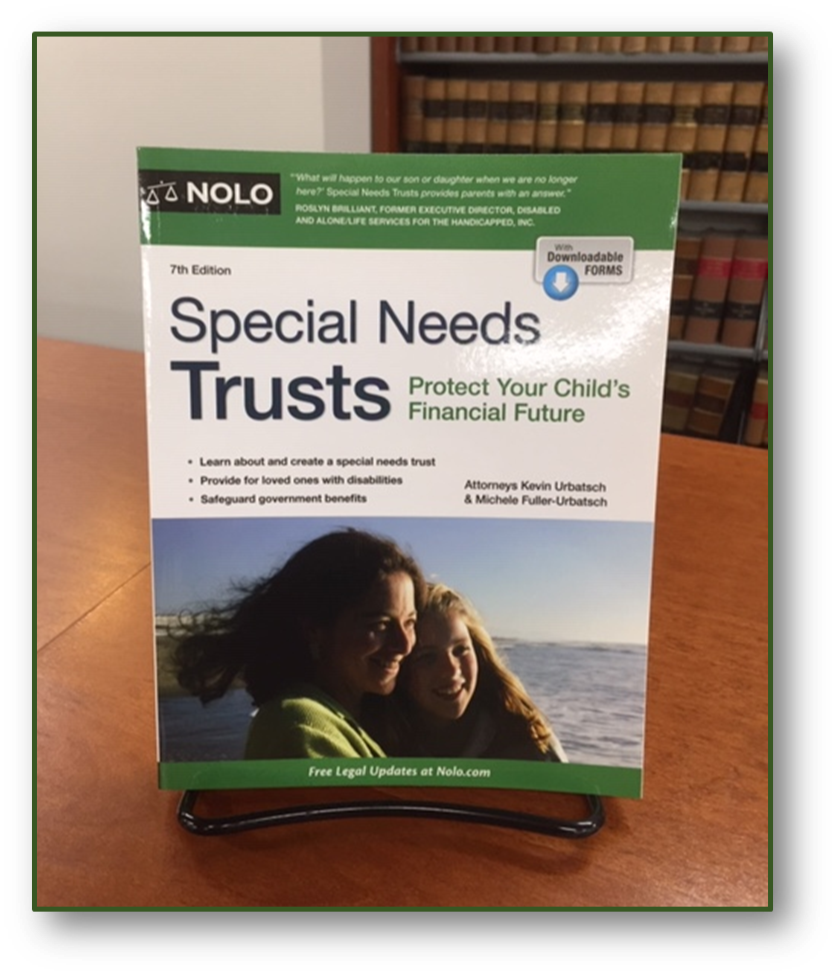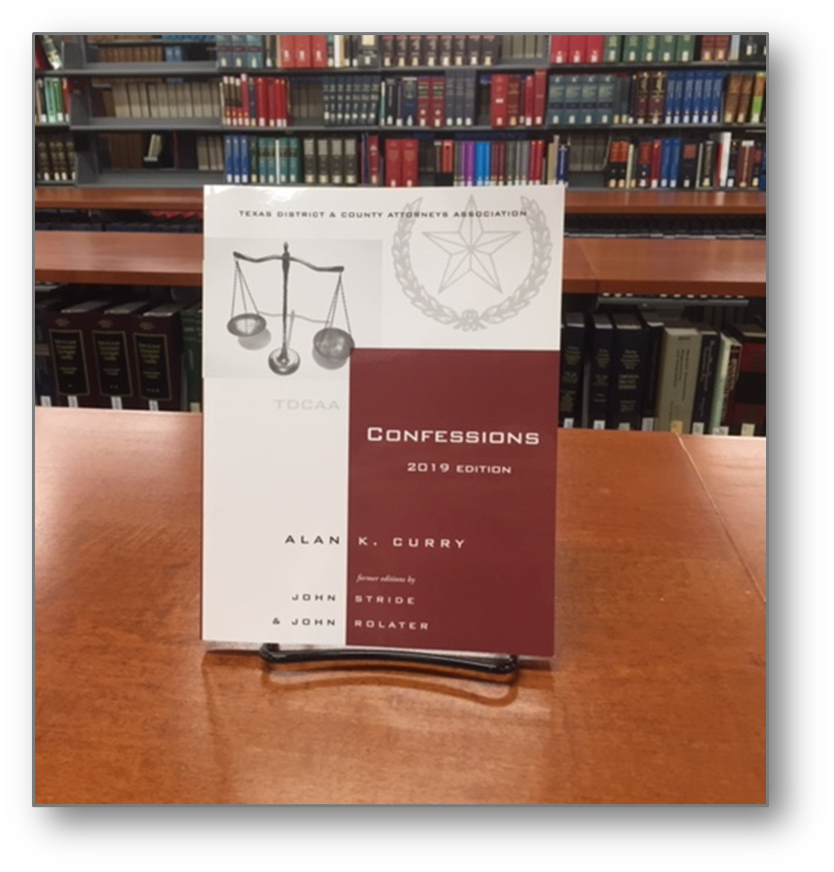May is Constitutional Law Resource Month at the Harris County Law Library. We will feature items from our collection, including treatises, reference works, CLE course materials, form books, and other practitioner tools that may be useful in conducting constitutional law research .
Latest & Greatest – Special Needs Trusts: Protect Your Child’s Financial Future
Parents of children with special needs understand that their loved ones require not only special care but also special planning. In most, if not in all, cases, individuals with special needs receive benefits under governmental programs, such as Supplemental Security Income and Medicaid. However, unless arrangements are made, any funds the child will receive by way of inheritance will affect the provision of any governmental benefits. Special needs trusts (SNT) are a legal mechanism that permits the leaving of money to a loved one without jeopardizing the receipt of governmental benefits. If you are unfamiliar with SNTs or are unsure of how to establish one, have a look at Nolo’s Special Needs Trusts: Protect Your Child’s Financial Future. This book explains the nuts and bolts of how SNTs work and who can benefit from them. It also addresses how the trust funds can and cannot be used, how to create and draft the SNT, and how to and finalize and fund the trust. Of course, you also need to determine who will administer the trust and act as trustee. For this important topic, the authors use two chapters to explain how to choose a trustee and what the duties of that trustee will be. Other topics of interest include ABLE accounts, pooled trusts, and letters of intent.
If you or someone you know has a loved one with disabilities, be sure to read Nolo’s Special Needs Trusts: Protect Your Child’s Financial Future. It could allow you to rest easy knowing that your child or loved one will be provided for when you are no longer here. You can find it in the Law Library’s Self-Help Collection.
Also, the Law Library has developed a Special Needs Legal Resource Guide with a listing of self-help resources, in-depth legal research materials, and resources available from the Texas State Law Library, the government, and Houston Bar Association.
Happy National Space Day
As the public law library for Space City, we’ve taken a special interest in space law. And there are plenty of interesting things in Texas law about space, including the Texas Administrative Code provision pictured here on procedures for astronauts to vote from outer space! Celebrate National Space Day by taking a look at the Harris County Law Library’s accumulated knowledge of space law via the links below:
Space Laws
The National Aeronautics and Space Act of 1958, contained in the United States Statues at Large, Pub. L. No. 85-568, 72 Stat. 426-438, established NASA and marked America’s official entry into the Space Race.
The Code of Federal Regulations, Title 14: Aeronautics and Space details the purpose, function, and organization of NASA as mandated by Congress.
To accommodate the large number of astronauts who live in Texas, the Secretary of State adopted special rules, spelled out in the Texas Administrative Code §81.35, that authorize NASA to implement procedures for casting ballots in outer space.
The Outer Space Treaty, the multilateral agreement that established the governance of state activities in the exploration and use of outer space, was signed by more than 100 countries. It was first proposed by the United Nations Committee on the Peaceful Uses of Outer Space in August of 1966, making this the 50th anniversary of its conception.
Space Law Collection
Further Reading
Landlord Tenant Information
This blog post was originally published on May 2, 2019, and was last updated on May 3, 2024.
Some of the most frequent questions our reference librarians field here at the Harris County Hainsworth Law Library are about landlord/tenant disputes. Renters can face challenging situations made even more murky by a cacophony of unreliable information available on the Internet regarding their rights and responsibilities.
Every day, we encourage our patrons to utilize TexasLawHelp.org, an exceptional resource on Texas law for self-represented litigants, including tenants. Material available on the website covers a wide variety of topics and comes from excellent, trustworthy partners across the state. One such partner is Texas RioGrande Legal Aid, which has provided TexasLawHelp.org with a wealth of information, including about landlord/tenant issues. Anyone interested in learning more about tenant rights and responsibilities should check out these informative and easy to understand guides, some in English and some in Spanish, prepared by the folks at TRLA and presented by TexasLawHelp.org:
Spanish
English
Latest & Greatest – Confessions
Confessions are a crucial part of the evidence that is gathered during the investigation and prosecution of a criminal defendant. As such, it is important for attorneys, both on the prosecution side and the defense side, to understand the law surrounding these statements, especially those obtained during a custodial interrogation. In this regard, Confessions begins with the basics of confession law: what is a confession, what are the pertinent federal and Texas statutes that govern confessions, and what are the differences between federal and state confession law. The author then moves on to the heart of confession law: the custodial interrogation. Here, the reader will find a discussion of Miranda, its required warnings, and the exceptions to that requirement; in-depth explanations of the two key events that trigger Miranda: custody and interrogation; and an analysis of what occurs when a defendant invokes his rights under Miranda. Subsequent chapters address written and oral statements and some of the rules governing the admissibility of such assertions, statements and confessions made by juveniles, and hearings and trials. The author also explains some interrogation techniques and discusses false confessions and recantations and how those false confessions can be identified. Of course, no discussion of interrogation and confessions would be complete without an examination of the prosecutor’s ethical duties in obtaining or using a defendant’s confession.
Confessions is one of many books in the Law Library’s collection published by Texas District & County Attorneys Association. If you are looking for resources that concisely explain various aspects, issues, and topics of interest to the criminal lawyer, have a look at this book and others, including Traffic Stops, Expunction and Nondisclosure, Predicates, DWI Investigation & Prosecution, and Punishment & Probation.





